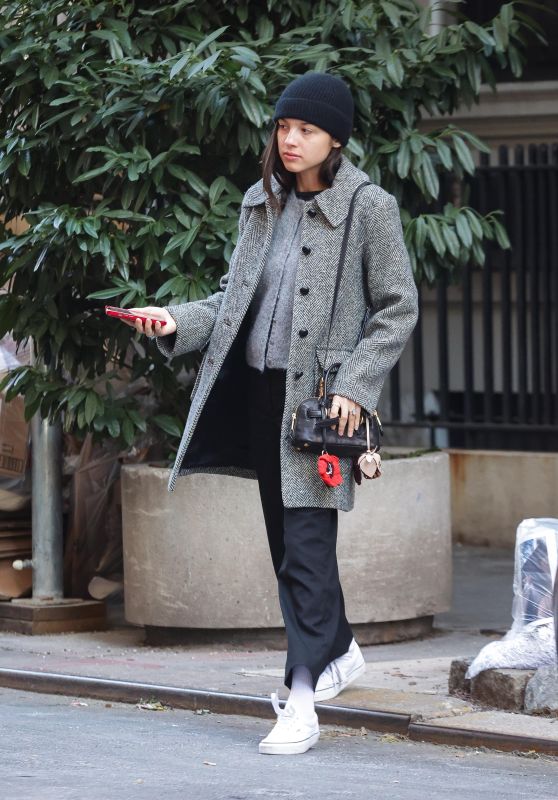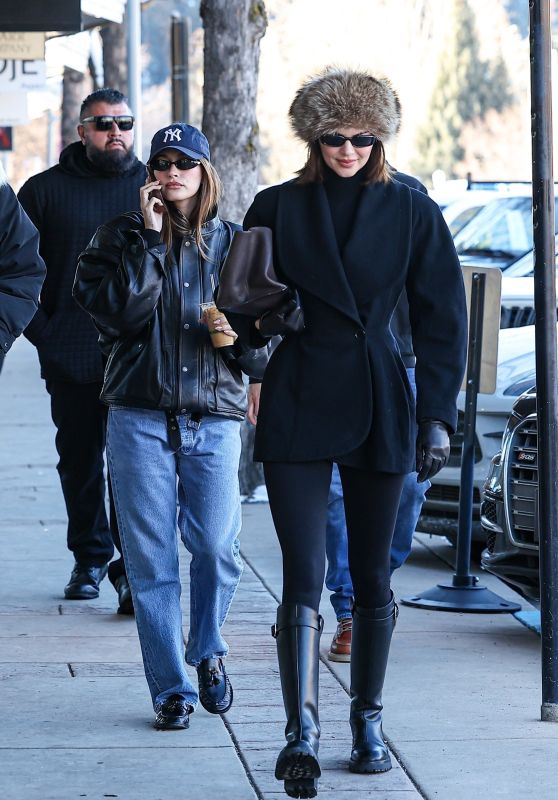Most Americans probably haven’t yet heard of Sindhu Vee, but she’s spending her fall trying to change that. The British comedian and actress, who didn’t start performing as a stand-up until her 40s after a career as an investment banker and a stint as stay-at-home mom, is suddenly quite ubiquitous if you look in the right places.
Vee stars alongside Naveen Andrews in The Pradeeps of Pittsburgh, which premiered on Amazon Prime Video on Oct. 17. She’s also in the midst of her first-ish North American tour — one that is testing her patience with a few airlines that won’t be named. “Every time I move from one city to another, the show is in another time zone,” she says. “You really love red eyes here.”
Vee gained notoriety in the U.K. after a particularly popular set on BBC’s Live at the Apollo (not to be confused with Showtime at the Apollo) and has since been steadily raising her profile with a stint on Sex Education and a role in Netflix’s Matilda the Musical. Speaking on the phone earlier in October, she talked about why she’s not content to merely laugh at a joke, when she chooses to deploy an Indian accent and how her new Amazon show, despite its title, is not the usual fresh off the boat tale.
Is this your first U.S. tour?
I came in March to perform here for my first time ever. Before I arrived, the tour sold out — which was a surprise to everybody. So my promoter was like, “You have to come back!” And it’s great, but every time there’s a gap he’s like “Let’s go to Chicago! Let’s go to Houston!” It’s exhilarating, but it’s a lot of travel. And I really want to get in front of as much of my audience as I can — and when I say “my audience,” I mean the people who are buying tickets.
Your special hasn’t aired here, has it?
We filmed my first special, Sand Hog, for Amazon Prime, but there was this weird thing where it was only shown on Amazon in the U.K. — but, you could watch it globally if you went through the Soho Theater player. It’s not been as easily accessible to people outside the U.K.. By now, I have clipped it up and put it on my socials a lot more, and so it’s more known. For my second special, and we’re still trying to figure out where it will go, my preference is that it be global and not require weird log-ins in different places.
To be gross and American and talk about money for a second, what is the market like for stand-ups in the UK right now? Because here, a special on a streaming service can be very lucrative.
I don’t think American streamers are throwing money at me just yet. Why not? Hello? But every comic in the U.K. wants to be on a global platform right now. It is still a very big deal to get a Netflix or Prime Video special. It’s not easy. So, I don’t know how these people going to the tour know about me — social media? — but I’m happy they’re buying tickets.

Do you enjoy engaging in social media?
The way that I do it, sure. (Laughs). I just post clips from my special, promote gigs and, during the summer, there’s a lot about mangoes. In the summer, you get Indian mangoes in the U.K. I feel the need to talk about them, because I love them. There’s a lot of education about what makes a good mango that’s being missed, so I’ve taken it upon myself.
Your first special came out of Fringe, which fascinates me as an incubator. Phoebe Waller Bridge’s Fleabag, Michaela Coel’s I May Destroy You, Richard Gadd’s Baby Reindeer… they’re all ideas that gained momentum at Edinburgh. Is that a path that interests you, the stage-to-TV-show pipeline?
That’s been in process since I performed that debut hour. After I shot it, Roughtcut, the production company, came to me and said, “We want to write a TV show with you.” I was so new. “What do you mean? I don’t write. I’m a stand-up.” But we started working on something very similar to the shows you’ve mentioned. They would bring me into the office and taught me how to write a script. They had to drag me in kicking and screaming. I was scared! I always wanted my career to be like a sunrise, not a comet. I didn’t want to push it. But they were very convincing. So, we wrote a script and we filmed a non-TX pilot (not to be aired on TV) for the BBC. But then the Apollo clip went viral, and suddenly I was so busy and going to L.A. to have generals. The path to an autobiographical TV show does exist for me, but it’s just been a process.
For now, you have this TV show. Have you ever been to Pittsburgh?
No, but I’ve been to Redding, Allentown and Harrisburg.
An odd trio of Pennsylvania cities to visit first! This show is part fresh-off-the-boat story, part Rashomon, part procedural. Was the play with form what piqued your interest?
Whenever I get the email of “they want you to read for this,” I tend to be a little wary. I always wait to get excited about a script that’s about a brown family or a brown anybody, because there’s so much stereotyping that goes on. I find it a lot. I only want to be involved with things that are ha ha funny and then explore where is that laugh coming from. And I laughed at this pilot script. There are a lot of jokes. But the thing that really got me was that this is a family that’s coming to the United States for different reasons than you normally see. Not every Indian who arrives in the U.S. is running from desperate poverty and doesn’t know how to speak English. My character is a neurosurgeon. She doesn’t want to come to America. She likes her life in India. That makes a lot of sense to me, because I moved to the west to work in my twenties.
You were born in India. I’m curious about your relationship with the Indian accent, particularly when and how you choose to use it in your work. There’s obviously a problematic history of how it’s been portrayed in popular culture. And, on stage, you deploy one with varying degrees of potency — and the one you’re using in this show is very much not your own.
Just a sidebar on the accent… When I talk about my mother, who passed away in 2019 and to whom I was very close, I talk exactly like she did. It’s impossible for me to bring her into the conversation and not sound exactly like she did. The same with my father. So, that’s the one place where I have very strong accent. Coming to this show, I know she’s a neurosurgeon. She’s from Ahmedabad. She clearly went to certain schools. Her accent is going to be middle of the road. She doesn’t talk like my mom, who did not grow up speaking English. I grew up in several parts of the world and learned to speak English at an American school. But I also came back to India and went to a Hindi-speaking school. My accent moves around a lot. If I’m in India for a month, I start sounding a lot more like Sudha. That accent is part of me. So, I didn’t have to sound like a version of that accent that I didn’t agree with. That would’ve been problematic.
Have you ever encountered a problematic scenario?
Once or twice, playing someone’s mother in a small cameo. There’s one show I can think of in particular. The requirement was there that I sound like the older South Asian lady, along the lines of my mother. Fine, OK. But there was a lot of Hindi thrown in, so it wasn’t a complete caricature of an English-speaking Indian mom that would only be recognizable to people in the West.
Before I let you go… as a former London investment banker, do you have any takes on the show Industry?
I have not watched it! I’ve had an idea to write something about women who are in that business. Some choose to leave because they have kids, like I did, and some choose to stay. And I want to be with my kids! It’s a basic instinct that makes so much sense in every pore of your body. But then you’re home and you have no identity. Loving your kid is not an identity. Then you’re like, “Who the fuck am I?” You kind of become invisible. So that whole transition, versus the experiences of the women who choose to stay, that’s the world I’m interested. And I have this big fear that if I watch anything in a similar world, it’ll bleed into my mind.




















 English (US) ·
English (US) ·